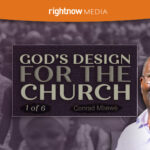As part of larger series of articles exploring church leadership according to the New Testament, this article considers the requirements or qualifications for church elders. Already we’ve considered the role of elders, as authoritative leadership and preaching that is always accountable to others. Put another way, the New Testament doesn’t suggest that any one elder is set apart from or above other elders. So an eldership or plurality of elders should lead a local church, rather than one man. Now let’s look at who qualifies.
The Bible insists that churches should be led by godly elders.
The Bible insists that churches should be led by godly pastors and elders. This is what Paul told Timothy in 1 Timothy 3:1–7. He gave similar instructions to Titus in Titus 1:5–9. Notice from these qualifications or requirements that there are three areas in which a person must qualify in order to be an elder in the church.
1. Personal Godliness
In both of the lists of qualifications given to Timothy and Titus, Paul emphasised that the person being considered for the office of elder must be truly godly.
His godliness should be evident to all.
To Timothy he said, “An overseer must be above reproach, the husband of one wife, sober-minded, self-controlled, respectable, hospitable, able to teach, not a drunkard, not violent but gentle, not quarrelsome, not a lover of money” (1 Timothy 3:2–3). To Titus he wrote, “An overseer, as God’s steward, must be above reproach. He must not be arrogant or quick-tempered or a drunkard or violent or greedy for gain, but hospitable, a lover of good, self- controlled, upright, holy, and disciplined” (Titus 1:7–8).
The sanctifying work of the Holy Spirit should be evident in a person’s morally transformed character before he should be considered for the position of elder. His godliness should be evident to all, because an elder must not only lead by what he says; he should also be an example to the church about how a Christian should live in obedience to God.
2. Domestic Management
In both lists of requirements for the office of elder, Paul also mentioned the need for a person to prove himself through the way in which he manages his own family.
The principles involved in leading a church are similar to those for leading a family.
To Timothy he wrote, “He must manage his own household well, with all dignity keeping his children submissive, for if someone does not know how to manage his own household, how will he care for God’s church?” (1 Timothy 3:4–5). To Titus he wrote, “If anyone is above reproach, the husband of one wife, and his children are believers and not open to the charge of debauchery or insubordination” (Titus 1:6).
The reason this is vital is seen in the question that Paul asks Timothy. If someone fails the test in managing his own household, how do you honestly expect him to pass the test in taking care of God’s church? He will fail again. So, do not appoint him to that position in the first place. The principles involved in leading a church are basically the same as those involved in leading a family. The need for regular instruction is the same. The balance between love and discipline is the same. The issue of being a good example to those being led is also the same.
3. Teaching Competence
This quality should be seen especially in the way in which the person handles the word of God and in matters of doctrine. In Paul’s list of requirements given to Timothy concerning elders, you can almost miss it because it is a very short phrase. Among the personal qualifications, the apostle wrote that an elder must be “able to teach” (1 Timothy 3:2). But to Titus he elaborated this point: “He must hold firm to the trustworthy word as taught, so that he may be able to give instruction in sound doctrine and also to rebuke those who contradict it” (Titus 1:9).
This is vital to the life of the church, as elders lead God’s people using the word of God. An elder should not be a maverick who keeps changing what he believes or who teaches his own beliefs that are not scripturally based.
This is not suggesting that every elder should be a gifted preacher.
Notice, however, that this is not suggesting that every elder should be a gifted preacher of the word of God. Preaching is a specialised form of teaching. It is a public and authoritative proclamation of the word of God. Not every elder needs to be gifted in this way. However, every elder should be able to open the Bible and instruct an individual, a small group of believers, or even a larger group, depending on his level of giftedness. In this way, he will be leading God’s people through sound doctrine and restoring to a sound faith those who are going astray. This is real eldership work.
Can Women Serve as Elders?
It is worth mentioning here that elders in the Bible were always males. There is not even a hint of a female elder in the church in the New Testament—or Israel. The fact that he will be instructing the whole church in the word of God puts this office outside the sphere of women because of what Paul stated earlier: “Let a woman learn quietly with all submissiveness. I do not permit a woman to teach or to exercise authority over a man; rather, she is to remain quiet” (1 Timothy 2:11–12). This is worth emphasising today because the atmosphere of egalitarianism seems to demand a reversal of this biblical norm.
This article was adapted from God’s Design for the Church: A Guide for African Pastors and Ministry Leaders, by Conrad Mbewe, Copyright © 2020, pp. 103-105. It is used with the permission of Crossway, a publishing ministry of Good News Publishers, based in Wheaton, IL. Purchase a copy at Christian Book Discounters. You can read a review of it here, as well two series of articles adapted from the book dealing with: (1) The Church and Money; and (2) Church Discipline.














